Who is running Northern Ireland?
- Published
- comments
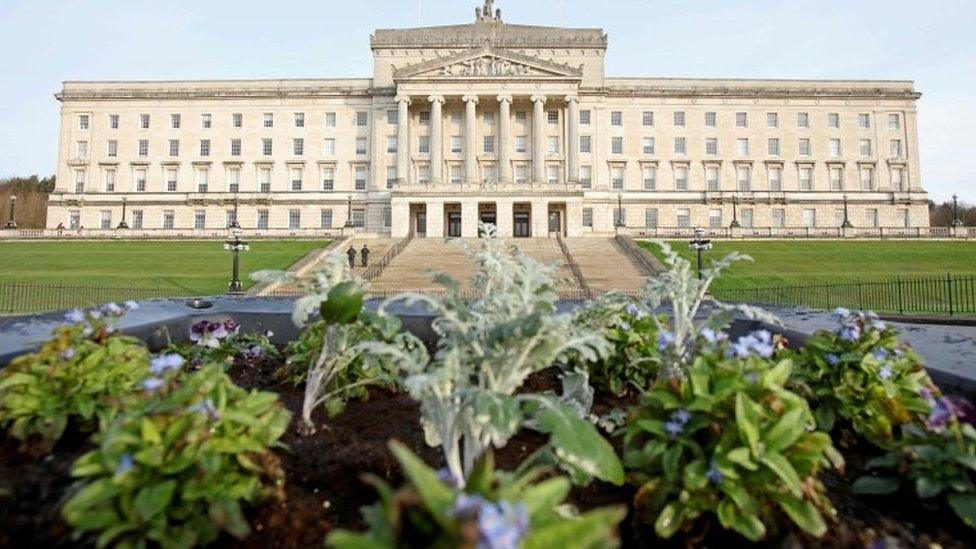
The power of civil servants is limited without ministers in place
The absence of Stormont ministers has left senior civil servants controlling the nine government departments in Northern Ireland.
The likelihood is that they will remain in control until the early part of next year, if not longer.
They are dealing with many challenges, especially on the financial front, with Stormont departments facing a projected overspend of more than £600m.
Ministers ceased to hold office at the end of October when the deadline for reforming the power-sharing executive passed without agreement.
With no ministers in place, the powers of civil servants are severely limited. They can only implement policies previously agreed by politicians and their ability to react to changing circumstances is negligible.
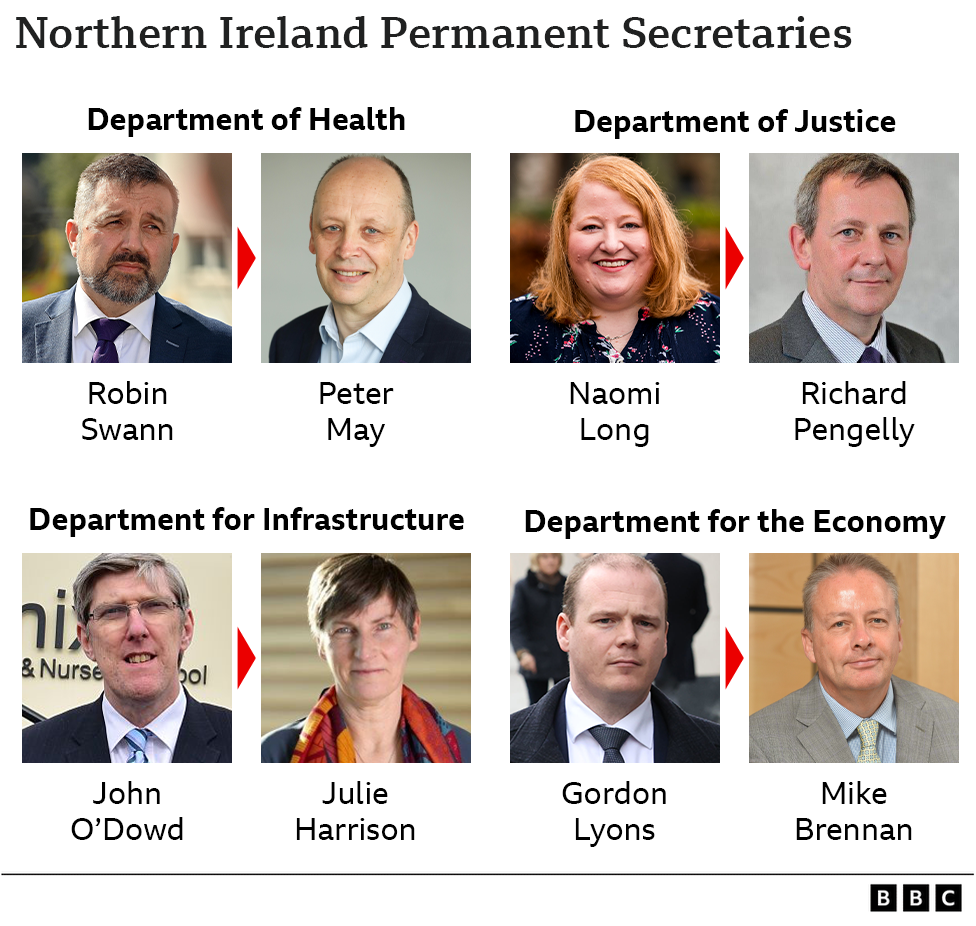

The Northern Ireland Secretary Chris Heaton-Harris intends to introduce legislation soon to set a budget and give civil servants more room for manoeuvre, but the details have not been confirmed.
In a statement to BBC News NI, The Executive Office outlined how Northern Ireland is currently being run.
"Departments will continue to deliver services as far as possible and business as usual will continue for the majority of services in the immediate future," said a spokesperson.
The statement spelled out the limitations faced by civil servants.
"With ministers leaving office on October 28, departments are now without political control or direction.
"The courts have made clear what departments can do in the absence of a minister. The Court of Appeal confirmed in July 2018 that the role of the civil servant is to advise ministers and be accountable to them. The court also stated that any matter, which as a matter of convention or otherwise would normally go before the minister for approval, lies beyond the competence of a department in the absence of a minister."
That court ruling four years ago overturned planning permission for a £240m waste incinerator which had been approved by the Department for Infrastructure at a time when it did not have a minister.
Just like the current situation, civil servants were in control at the time, after the collapse of the power-sharing executive.
Although ministers returned in 2020, the executive fell again in February this year and no budget was agreed for the current financial year.
Ministers carried on in a caretaker capacity but that ended last month.
'Budget black hole'
Mr Heaton-Harris has given the parties until April to resolve their differences.
In the meantime, he is taking action.
He told the House of Commons on Wednesday: "I must take limited but necessary steps to protect Northern Ireland's public finances and the delivery of public services.
"The legislation I introduce will also enable Northern Ireland departments to support public service delivery, make a small number of vital public appointments, like to the Northern Ireland Policing Board, and address the serious budgetary concerns."
There is, he said, a "£660 million in-year budget black hole" that needs to be tackled.
The Department of Finance confirmed to BBC News NI that talks have already begun to try to address the issue.
A spokesperson said: "Work is ongoing with departments and NIO (Northern Ireland Office) to set a budget, including management of the projected overspend."
They are hoping to make progress before the end of this year.
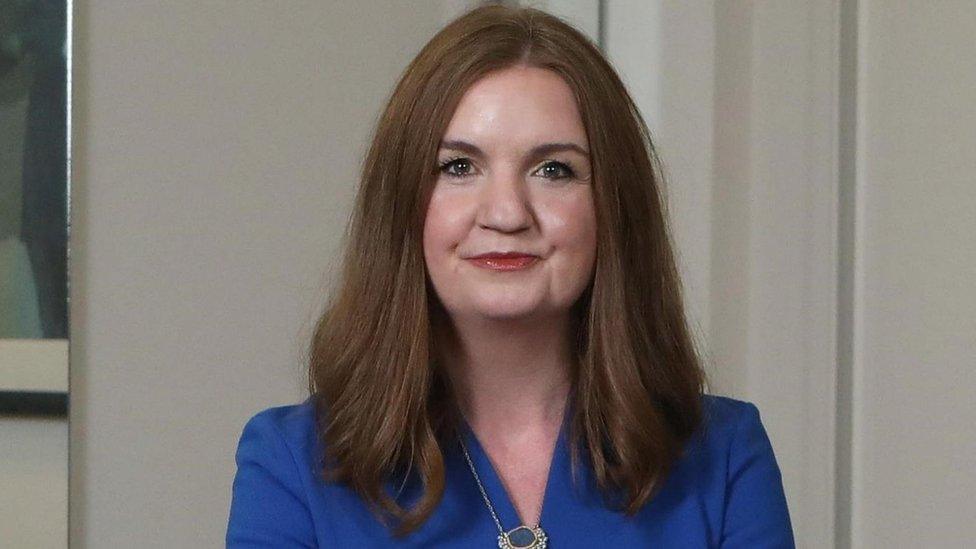
Head of the civil service Jayne Brady
An NIO spokesperson told BBC News NI: "The Secretary of State for NI has communicated his intention to introduce legislation in the next two to four weeks. The legislation will clarify the decision-making powers of NI Civil Service departments to support public service delivery."
The nine government departments in Northern Ireland are controlled by senior officials known as permanent secretaries. The head of the civil service is Jayne Brady.
Since the executive collapsed, she has represented Northern Ireland at UK-wide events with no ministers able to attend.
She declined a request for a BBC interview.
Behind the scenes, it is clear she is confronted by a huge challenge.
She is overseeing the civil service at a time when it is facing increasing demands, heightened scrutiny and no clear indication of when ministers will return.
Related topics
- Published11 November 2022
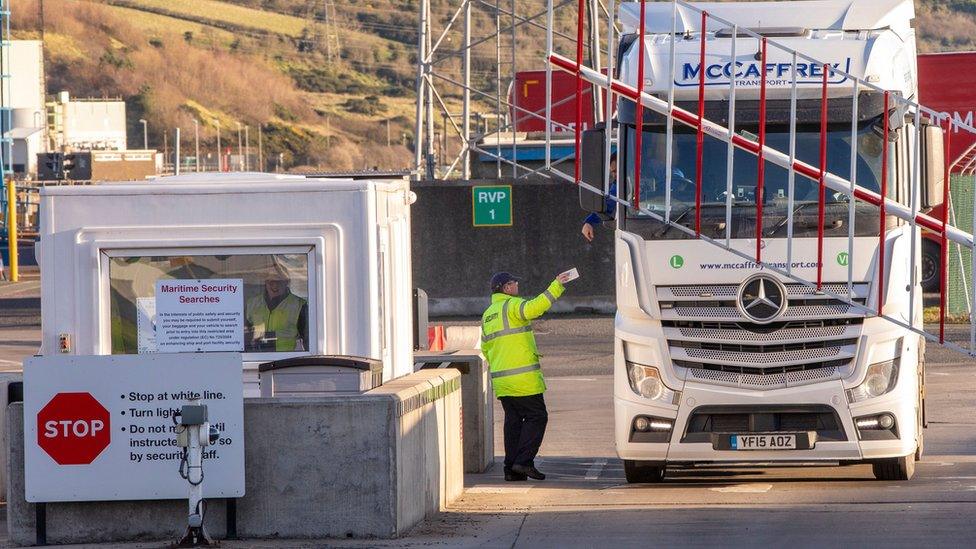
- Published10 November 2022
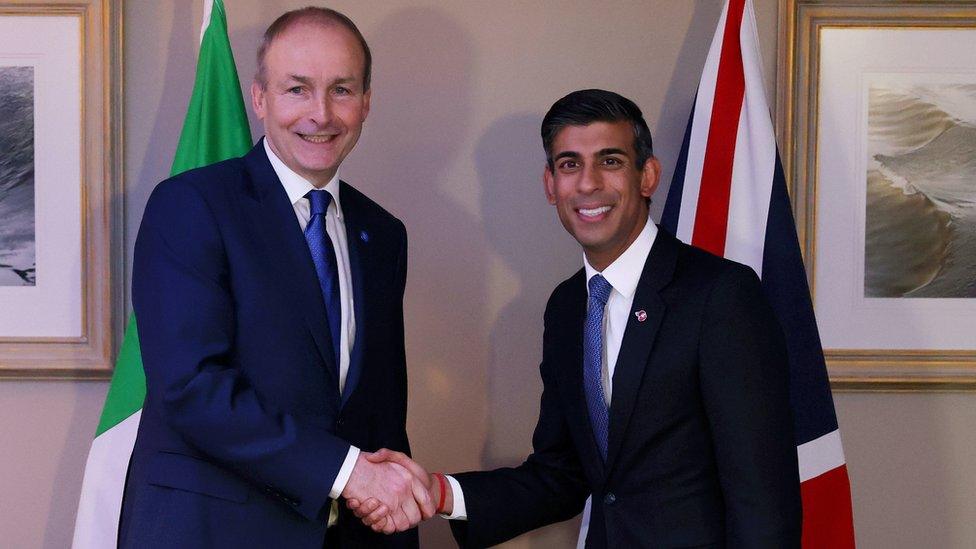
- Published10 November 2022
